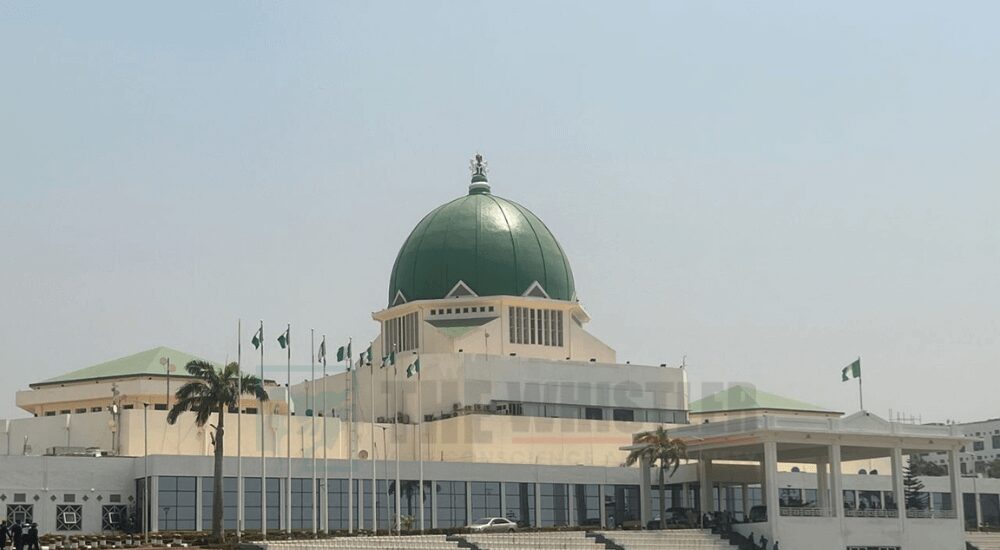Former member of the House of Representatives, Hon. Sergius Ogun, has accused the leadership of the 10th National Assembly of being deliberately chosen to serve the interests of the executive arm, describing the current legislature as “rubber stamp pro max.”
Speaking on ARISE News on Wednesday, the ex-lawmaker, who represented Edo State in the 8th and 9th Assemblies, said the legislature’s handling of budgetary and oversight duties clearly shows that it has surrendered its independence to the executive.
“When I was leaving the National Assembly in 2023, I told some journalists that if they thought the 9th Assembly was rubber stamp, the 10th Assembly would be rubber stamp pro max and that’s exactly what’s playing out now.
“It was obvious from the way they were preparing the leadership that the executive wanted people they could easily manipulate,” Ogun said.
He dismissed the much-praised January-to-December budget cycle introduced under late ex-President Muhammadu Buhari, saying it was largely symbolic and failed to end the problem of overlapping fiscal years.
According to him, two budgets were still being implemented simultaneously by the time Buhari left office in 2023.
Advertisement
Weighing in on the growing discontent among lawmakers over delayed releases for constituency and capital projects, Ogun said the frustration was understandable given the expectations of constituents.
“I feel for my colleagues. In Nigeria, people don’t care how many bills or motions you’ve sponsored, they want to see projects on ground. The year is ending, and members will soon go home for Christmas. What do they have to show?” he stated.
He, however, warned that the situation could worsen as the 2027 election cycle approaches, with political campaigns for party primaries expected to begin by December.
“Next year is the election year. Primaries will start around May or June, but campaigns for those primaries actually begin this December. Before lawmakers start distributing food or gifts, they need to show what they’ve done in office. Saying ‘it’s in the budget’ doesn’t convince anyone anymore,” he noted.
Speaking on the country’s economic situation, Ogun faulted the government’s management of funds saved from fuel and electricity subsidy removal, noting that the expected benefits have not reflected in the lives of citizens.
Advertisement
“Most of us supported subsidy removal, but the understanding was that the savings would be managed properly. Now, people are asking where are the savings? We are paying more for electricity under Band A, most subsidies are gone, yet we’re still borrowing. That’s why people are frustrated,” he said.
He emphasised that the subsidy funds belong to the entire federation, not just the federal government, and questioned the impact of increased allocations to states on ordinary Nigerians.
He said, “The subsidy money was federation money, it didn’t belong to the federal government alone. So yes, the states and local governments are entitled to their share. But the federal government also told us that with the savings, we wouldn’t be borrowing anymore. Yet, we are still borrowing. That’s why people are asking questions.”
Turning to electoral reforms, Ogun, a member of the “House to Rescue Coalition,” cautioned against any attempt to weaken provisions for electronic transmission of election results in the Electoral Act 2022.
“Section 60, sub-section 5 of the Electoral Act 2022 clearly states that results should be transmitted electronically from the polling unit to the server.
“We’re hearing now that they want to amend the law to go fully manual. We’re saying no. We can’t go backward. We should be improving on what we already have.
Advertisement
“Sections 1 to 4 are manual, how you vote, how forms are signed and given to agents but 60(5) says results must be transmitted electronically. If they’re now saying they want to go completely manual, that’s unacceptable,” Ogun stressed.
He urged the National Assembly to assert its autonomy, uphold the spirit of the Electoral Act, and rebuild public confidence in governance through transparency and accountability.

